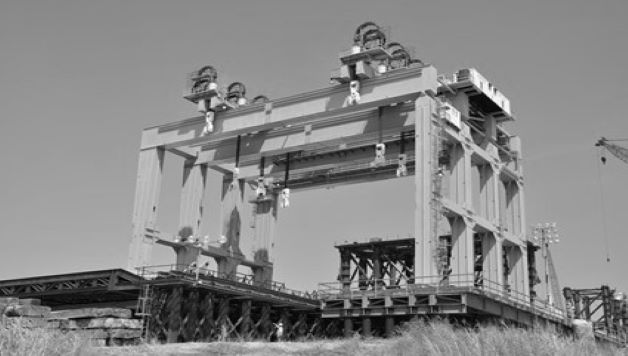This article was written by James Keeves and Wilson Huang, solicitors in the competition litigation team in our Sydney office
The ACCC has continued to build on its efforts in the commercial construction industry with recent success in proceedings against Queensland-based construction company J Hutchinson Pty Ltd (Hutchinson) and the Construction, Forestry, Maritime, Mining and Energy Union (CFMMEU). The result is a much-needed win for the ACCC after a string of recent outcomes in competition enforcement (such as recently discontinued prosecutions of Deutsche Bank, Citigroup and ANZ, and of the CFMMEU and Jason O’Mara, as well as losses in contested proceedings against NSW Ports (under appeal) and The Country Care Group).
Justice Downes of the Federal Court found that Hutchinson made and gave effect to a boycott arrangement with the CFMMEU, contrary to ss 45E and 45EA of the Competition and Consumer Act 2010 (Cth) (CCA). Her Honour also concluded that the CFMMEU was not only knowingly concerned in Hutchinson’s contraventions, but had induced them, contrary to s 76 of the CCA.
The ACCC’s enforcement priorities
Since 2017, the ACCC has prioritised the investigation of anti-competitive conduct in the commercial construction industry, including by setting up a specialised Commercial Construction Unit for this purpose. Since then, the ACCC has commenced, or been involved in, a number of proceedings in the sector, including criminal proceedings against the CFMMEU, secondary boycott action against the CFMEU, and alleged cartel conduct by NQCranes (for alleged market sharing in the overhead cranes industry), Delta Building Automation and director Timothy Davis (for alleged bid rigging concerning a National Gallery of Australia tender), and two roof tiling businesses and their directors (for alleged bid rigging).
The Hutchinson/CFMMEU case was referred to today by Rod Sims in his swan song speech delivering the ACCC’s enforcement priorities for 2022, which we are writing about separately. Mr Sims said, “This case reflects the priority we have given to commercial construction in recent years and has clear implications for the way the construction sector operates in Australia. I hope these lessons are learnt by all involved.”
Facts
Hutchinson, a construction company, was the head contractor for a construction project in South Brisbane. The project involved the design and construction of a residential apartment tower (the Southpoint Project).
Hutchinson was covered by an enterprise bargaining agreement (EBA) with the CFMMEU. Under the EBA, Hutchinson was obliged to consult with its employees and the CFMMEU about the appointment of subcontractors in circumstances where the job security of those employees might be affected. Hutchinson was also obliged to engage the subcontractor and its employees on terms and conditions that were no less favourable than those they would receive had they been engaged as employees of Hutchinson.
In 2016, Hutchinson engaged a subcontractor, Waterproofing Industries Qld Pty Ltd (WPI), to perform waterproofing works at the Southpoint Project. WPI did not have an EBA. Shortly thereafter, the CFMMEU complained that it had not been consulted prior to WPI being engaged and threatened to undertake industrial action if Hutchinson allowed WPI to continue work on the Southpoint Project. WPI was subsequently excluded from the project and had its subcontract with Hutchinson terminated.
The ACCC’s case
In December 2020, following an investigation (and assistance by the Australian Building and Construction Commission), the ACCC commenced a civil penalty proceeding against Hutchinson and the CFMMEU.
The ACCC’s central allegation was that Hutchinson had made and given effect to an arrangement or understanding with the CFMMEU (the boycott arrangement) which contained a provision to the effect that Hutchinson would terminate its subcontract with WPI at the Southpoint Project (the boycott provision). The boycott provision was thereby said to have the purpose of preventing or hindering Hutchinson from acquiring or continuing to acquire services from WPI. This was alleged to be in contravention of ss 45E and 45EA of the CCA.
The ACCC also alleged that the CFMMEU had, by threatening industrial action if Hutchinson did not cease using WPI, induced and was knowingly concerned in, or party to, Hutchinson’s contraventions, within s 76 of the CCA.
The decision of the Federal Court
On 14 February 2022, Downes J held that Hutchinson had contravened ss 45E and 45EA by making and giving effect to the boycott arrangement containing the boycott provision. Her Honour was also satisfied that the CFMMEU had induced and was knowingly concerned in, or party to, those contraventions.
Was there an acquisition situation under subs 45E(1)?
The first issue that her Honour was required to consider was whether Hutchinson had been accustomed, or was under an obligation, to acquire services from WPI such that there was an “acquisition situation” under sub-para 45E(1)(b) of the CCA. Whereas Hutchinson accepted that there had been an acquisition situation, the CFMMEU submitted that there had been no acquisition situation because the WPI subcontract and acquisition of services from WPI by Hutchinson was unlawful such that there was no relevant acquisition. However, for technical reasons relating to the specific terms of the EBA, Downes J found no breach of the EBA and concluded that there had been an “acquisition situation”.
Did Hutchinson and the CFMMEU arrive at an arrangement or understanding under subs 45E(3)?
On this second issue, Downes J was satisfied that there existed an arrangement or understanding between Hutchinson and the CFMMEU arising from facts and circumstances which have “such a concurrence of time, character, direction and result as naturally to lead to the inference that [their] separate acts were [the] manifestations of mutual consent to carry out a common purpose”. Her Honour explained that the evidence established that Hutchinson and the CFMMEU reached a consensus pursuant to which they committed to a course of action of not allowing WPI back on to the Southpoint Project site. The end result was that Hutchinson would cease to acquire waterproofing services from WPI and would terminate its subcontract with WPI.
Did the arrangement or understanding between Hutchinson and the CFMMEU have the purpose of preventing or hindering the acquisition of services under sub-para 45E(3)(a)?
It is interesting to note that sub-para 45E(3)(a) differs in a key respect to other sections of the CCA which prohibit provisions of contracts, arrangements or understandings with particular anti-competitive purposes. That difference relates to the need to prove a “common purpose” — that is, to prove that all parties to the contract, arrangement or understanding held the same alleged proscribed purpose.
It is well-established in the authorities that a “common purpose” is not required in order to establish a cartel provision (under s 45AD) or an anti-competitive agreement (under s 45). Thus, it is sufficient if only one party responsible for the inclusion of the impugned provision subjectively held the alleged proscribed purpose. Under s 45E, however, it is necessary to prove a common purpose. This is because the provision depends upon the bilateral conduct of the parties to include the provision. Another key difference is the fact that the purpose to be established under s 45E need not be “a substantial purpose”; it need only be a purpose subjectively held by both of the parties.
With these principles in mind, Downes J concluded that by including the boycott provision, both Hutchinson and the CFMMEU held the subjective purpose (i.e., the end sought to be achieved) of ensuring that Hutchinson would cease to acquire waterproofing services from WPI and would terminate the subcontract with WPI. Her Honour was satisfied that this purpose prevented or hindered Hutchinson from continuing to acquire services from WPI, thereby satisfying sub-para 45E(3)(a) of the CCA. This conclusion had regard to the fact that the conduct of Hutchinson and the CFMMEU formed part of a “wider strategy” of ensuring that Hutchinson only engaged subcontractors with an EBA to work on the Southpoint Project.
Accordingly, Downes J concluded that Hutchinson had contravened s 45E of the CCA by making the boycott arrangement and had contravened s 45EA by giving effect to the boycott provision.
Justice Downes was also satisfied that the CFMMEU was both knowingly concerned in Hutchinson’s contraventions and had induced Hutchinson to engage in those contraventions.
Her Honour inferred that CFMMEU had actual knowledge of the essential facts of Hutchinson’s contraventions because the evidence showed that CFMMEU:
- knew that Hutchinson had entered into a subcontract with WPI for the waterproofing works;
- had “joined” Hutchinson in preventing WPI from entering the site and performing the waterproofing work on it; and
- knew that Hutchinson had terminated the subcontract with WPI, which was the most likely or inevitable result of the boycott arrangement.
Justice Downes also considered the question of inducement, which requires proof that a person has acted in a way that is effective, and does not necessarily involve actual coercion or pressure, or the offer of an advantage. However, mere persuasion, with no promise or threat, is generally not sufficient to amount to inducement.
On this question, Downes J held that the CFMMEU had induced Hutchinson’s contraventions by threatening industrial action or implying that there would be conflict with industrial action if Hutchinson did not terminate the subcontract with WPI.
Key takeaways
As for the next stage of the proceedings, a hearing on penalty has been listed for 17 May 2022.
More generally, the decision of Downes J is likely to provide useful guidance for future judicial consideration of boycott arrangements, as well as cementing the approach courts are likely to take questions of accessorial liability under s 76.
Moreover, in light of the ACCC’s ongoing enforcement priorities, businesses in the construction industry and trade unions should remain vigilant about compliance with the CCA.
Apartment Tower by donp17 / Creative Commons CC BY 2.0 / Remixed to B&W and resized







